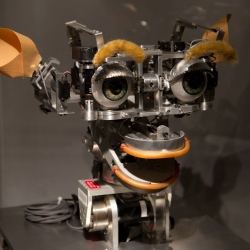
We are entering an era of devices and services that is bringing the dream of artificial intelligence to life. Eric Horvitz, head of the Microsoft Research Redmond lab, describes that by putting people at the center of our work, we can design products and services that understand our nuances, emotions and quirky behaviors. (See original article for video interview).
Horvitz shares his view that we are in a resurgence of optimism and hope as it relates to solving some of the core problems in artificial intelligence and there is much to look forward to. Horvitz believes machines will think original thoughts someday soon. "I often say when talking to folks that AI systems can literally be creative. They can identify new categories, new concepts, synthesize new approaches to challenge problems and come up with new ideas, even new distinctions that weren’t told to them originally."
Deep learning methods actually induce structure, according to Horvitz. This type of classification technology is extremely creative he says. Does this mean we will loose control of future AI systems? Horovitz doesn’t think so. He says we will be proactive as we progress in creating them.
In 15-20 years, Horovitz sees a world where we will all work quite closely with machine intelligence in our daily lives. This includes personal assistance, reminders, lifelong customized education, and new kinds of entertainment and gaming experiences. "Game AI becomes real AI," in his vision.
Horovitz talks about the movie Her. "I love certain things about that movie in terms of this notion of a relationship that we all have someday with a machine intelligence," he says. "I love the notion of what a Singularity is. I mean, these systems will have very little time for us if they are greater than human."
